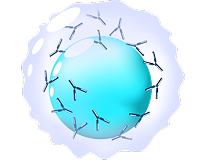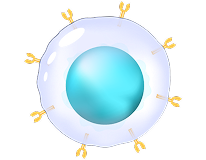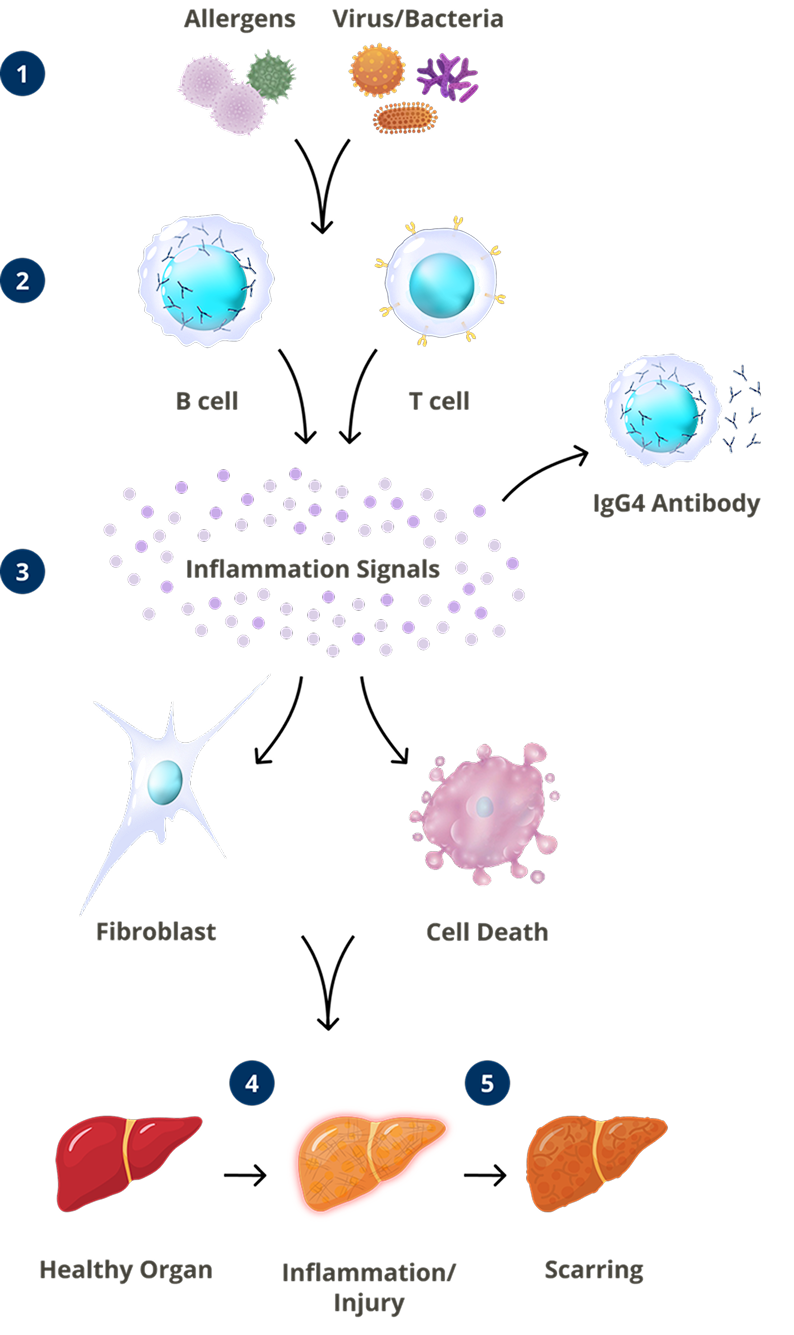You Are Now Leaving IgG4rd.ca
The linked sites are not under the control of Amgen, and Amgen is not responsible for the content available on the linked sites. Such links do not imply Amgen's endorsement of material on any other site, and Amgen disclaims all liability with regard to your access to such linked websites. Amgen provides links to other Internet sites as a convenience to users, and access to such linked sites is at your own risk.
Do You Want to Link to Another Amgen Canada Site?
You are now leaving the IgG4-RD Canada website. Please note that these links are being provided as a convenience and for informational purposes only.


IgG4-RD is a rare, lifelong autoimmune disease that causes swelling or tumour-like masses in various tissues and organs. The term “auto” means self, and “immune” refers to the immune system, which mistakenly attacks the body’s own tissues. This condition can progress silently over time, often without obvious symptoms.
Under normal conditions, the immune system defends the body by attacking harmful invaders like bacteria and viruses. However, in autoimmune diseases like IgG4-RD, the immune system mistakenly attacks healthy tissues, leading to inflammation and damage.
What Happens in IgG4-RD?
To Understand How IgG4-RD Develops, It’s Important to First Explore the Key Players in the Immune System
The Immune System: Your Body’s Defense Team
The immune system relies on different types of cells to protect the body, including:

B Cells
These cells produce antibodies, which are special proteins designed to recognize and neutralize dangerous invaders like viruses or bacteria.

T Cells
Think of T cells as the immune system’s soldiers. They attack harmful invaders and help regulate how the body responds to threats by communicating with other immune cells.
What Is IgG4?

B Cells
IgG4
B cells in the immune system produce antibodies called immunoglobulins, which help protect the body from harmful invaders like bacteria and viruses. These immunoglobulins are divided into five main classes: IgM, IgG, IgA, IgE, and IgD.
IgG4 is the least common member of the IgG class of immunoglobulins. Although uncommon, it plays an important part in regulating the immune system and helping prevent big allergic reactions.

- 1Triggers
- The immune system overreacts to something, like an infection or an allergen (a substance that can cause an allergic reaction).
- 2Activation of Immune System
- Certain immune cells, like B and T cells, become overactive and release signals that cause inflammation.
- 3Release of Inflammatory Signals
- These signals recruit healing cells called fibroblasts, which make collagen and other substances. This leads to scarring (fibrosis).
- Inflammation also damages healthy cells in the affected tissues.
- The signals cause B cells to make large amounts of IgG4 antibodies, which spread through the bloodstream.
- 4Tissue Damage and Scarring
- The build up of collagen and scar tissue makes tissues stiff and damages blood vessels.
- Over time, this scarring can affect almost any organ, causing tension and stress.
- 5Organ Dysfunction
- The scarring prevents organs from working properly, which can lead to serious complications or organ failure.
What Causes IgG4-RD?

The exact cause of IgG4-RD is unknown, but factors like genetics, smoking, hormones, allergies, and exposure to chemicals like asbestos, solvents, and mineral dust may increase the risk.
Who Is Affected by IgG4-RD?

More common in men than women

Most frequently affects people aged 50–70

Can occur in children

Affects people of all races and ethnicities
IgA, immunoglobulin A; IgD, immunoglobulin D; IgE, immunoglobulin E; IgG, immunoglobulin G; IgG4, immunoglobulin G4; IgG4-RD, immunoglobulin G4-related disease; IgM, immunoglobulin M.



 Precleared.ca
Precleared.ca